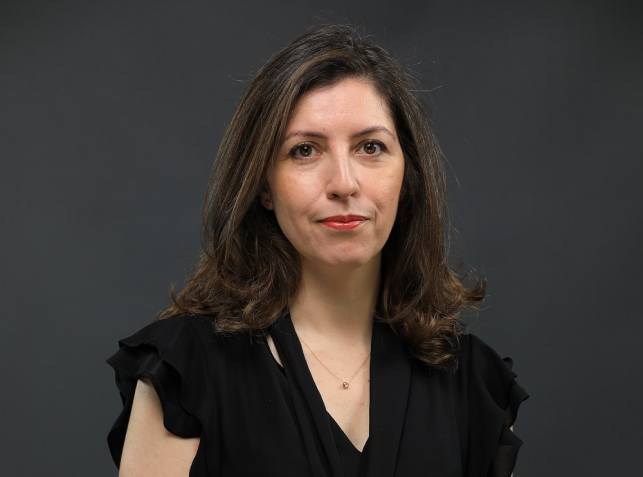
Leila Baghdadi

Leila Baghdadi is Professor of Economics at ESSECT, University of Tunis, where she holds the World Trade Organization Chair. She is an executive board member of the Central Bank of Tunisia since August 2019. She was appointed as a member of the Tunisian Council of Economic Analysis reporting to the Chief of Government from November 2017 to February 2021. Leila is a Research Fellow and a member of the Board of Trustees of the Economic Research Forum. She is an Associate Editor of the Middle East Development Journal. Leila received her PhD from University Paris 1, Pantheon Sorbonne in 2008.
Follow Leila on:
Website
Follow Leila on:
Website
Leila Baghdadi is Professor of Economics at ESSECT, University of Tunis, where she holds the World Trade Organization Chair. She is an executive board member of the Central Bank of Tunisia since August 2019. She was appointed as a member of the Tunisian Council of Economic Analysis reporting to the Chief of Government from November 2017 to February 2021. Leila is a Research Fellow and a member of the Board of Trustees of the Economic Research Forum. She is an Associate Editor of the Middle East Development Journal. Leila received her PhD from University Paris 1, Pantheon Sorbonne in 2008.
In their own words…
IEA: Can you tell us what made you pursue a career in economics?
Leila: After graduating from high school, I had to choose a major. As I loved mathematics and was attracted by development issues, my father convinced me that economics could be a good match. Since the first undergraduate years, I became passionate about economics thanks to the professors I had at the University of Tunis El Manar. One of the best courses I attended was International Economics. I decided that I will do research in this field.
IEA: A lot of your research focuses on trade policy. How do you see the contribution of trade to Tunisian economic development?
Leila: During the last decade, I worked on trade policy in Tunisia before the revolution and its impact either on firms, on households and workers. With my co-authors, we showed that the change in Tunisian tariffs has affected local prices, but the effect is lower in magnitude than that found for other developing countries. This is partly due to imperfect competition, market concentration in some sectors and state interventions that prevent the full transmission of changes in international prices. Our research suggests that, for Tunisia, trade facilitation measures and sectoral actions to facilitate the business environment could improve the price change transmission, which, in turn, contribute to increase domestic welfare and generate inclusive development. We also find that trade policy in Tunisia was pro-poor favoring more poor and rural populations in the country. While Tunisia decreased its tariffs, it also increased its non-tariff measures. Non-tariff measures (NTMs) are more prevalent in sectors in which there is market concentration and politically connected firms. The implementation of NTMs did not affect large firms. However, it has significant deterrent effect on small firms. NTMs increases in some sectors have also reduced the probability of firms to achieve high growth status. This might suggest that trade policy instruments might influence job creation indirectly if not rightly used.
IEA: Empowering women is one of your passions. What do you think about the status of women in the economics profession within the MENA region?
Leila: I think a lot about the challenges women face in the economics profession. While women are present in MENA academic institutions, mostly teaching economics, few are publishing in peer-reviewed journals. As an associate editor of the Middle East Development Journal, I am regularly reminded of this when I receive papers for consideration and review. Women also do not feature prominently in powerful economic policy-making circles, such as central bank boards, major financial institutions or economic think tanks. Providing support to women in economics in the region is not only a matter of equity or fairness; it would also have important economic payoffs because it would bring new ideas and perspectives to the field, which are likely to find their way into policy recommendations.
IEA: Researchers based in developing countries sometimes can face serious obstacles in accessing research networks in advanced countries. Would you have some advice for younger scholars?
Leila: I went through this myself and I can testify that accessing international research networks is a key to continue doing research in a challenging environment. I recommend younger scholars not to hesitate to present their work in international conferences, to reach out to international scholars and to take the leadership in initiating joint research projects when the opportunity arise.